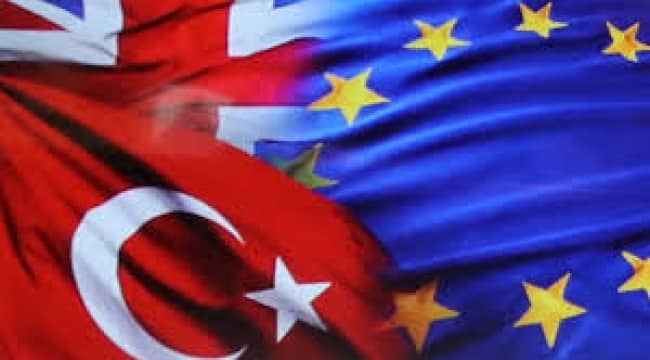9079
0
Trade Relations with England Will Take on a New Dimension
Trade relations with England will take on a new dimension. It is aimed to establish a Preferential Trade System with the UK after Brexit.

Yazar: Eylem Özer
Yayınlanma: 8 Ekim 2020 21:35
Güncellenme: 2 Mart 2026 20:41
Trade Relations with England Will Take on a New Dimension
Trade relations with England will take on a new dimension. It is aimed to establish a Preferential Trade System with the UK after Brexit.
It is aimed to start a new era on trade relations between Britain, which is leaving the European Union stage, and Turkey. Within the framework of the New Economy Program (YEP) announced by the Minister of Treasury and Finance Berat Albayrak in recent weeks, it is aimed to establish a new Preferential Trade System in order to add a new dynamism and dimension to commercial and economic relations with the UK.
For the years 2021-23 announced by Minister Albayrak, it is envisaged that the Preferential Trade Agreements and Free Trade Agreements, which are currently negotiated, will be finalized in the YEP in order to move the commercial relations with the relevant countries to a higher level and to further improve the existing relations, taking into account the sustainability of the current balance.
According to the plan, the Preferential Trading System is aimed to be completed by December 2022.
European Union Norms Will End
Speaking to AA correspondent Foreign Economic Relations Board (DEIK) of Turkey-Britain Business Council President Osman Okyay reminded that Turkey gave England trade surplus since 2001. Okyay noted that this situation constitutes a special example in terms of trade relations with developed countries.
Reminding that England is one of the 17 target countries determined in the Export Master Plan announced last year, Okyay said:
“Similarly, as the Foreign Economic Relations Board of Turkey-Britain Business Council, we are in bilateral talks, British officials said they also often aim to increase trade with Turkey.”
Commenting on the possible consequences of transitioning to the Preferred Trade System with England, Okyay said:
“Until Brexit, UK-Turkey relations were bound by EU rules. By the end of this year, this situation will end, and this relationship will require a new norm to replace the European Union (EU) norms.”
Okyay stated that, in the current situation, approximately 98 percent of trade with the UK is exempt from customs duty.
“This status will be automatically canceled after Brexit. If no new agreement is signed between the two countries, the World Trade Organization model comes to the fore. This also means the end of the implementation of customs exemption and implementation of customs between 5-12 percent to Turkey. The agreement that we expect the UK to sign with the EU is concurrent with the signing of a free trade agreement (FTA) with our country and the continuation of our trade with the UK without interruption, the protection of our competitive power against third countries since 1996 and the targeted 2023. It is very critical for us to reach the billion dollar trade volume target.”
Stating that, investment via trade agreements, employment and value added is the possibility to maximize the potential, Okyay reminded about 3 thousand privately-owned British companies are operating in Turkey and that the UK is among the top three investor countries.
Emphasizing that both governments showed a strong will within the framework of the Preferential Trade System efforts and that the negotiations were progressing in a positive atmosphere, Okyay said:
“As far as we know, the priority of the parties is to maintain the current conditions and then move forward with an agreement that goes beyond the advantages provided by the Customs Union. Due to the legal status of Brexit, negotiations have not started officially at the moment. We know that there is a positive dialogue between the two parties. We hope we are very close to a win-win agreement. It is also of great importance to take steps to increase mutual investment.”
Underlining that great efforts have been made to sign an agreement that will take effect immediately when Brexit becomes official, Okyay said, “The officials of the Working Group, which held its 9th meeting in July, stated that the planned trade agreement is an intermediate step to strengthen and deepen relations.”
İLGİLİ HABERLER





European stocks soared and focus shifted to German retail sales after Powell's speech!

Forex Signal For TRY/USD: Inflation Slowdown in November.

Forex Signal For GBP/USD: Bullish Trend Still Not Breaking While Recovery Continues.

Forex Signal For EUR/USD: Starry US Data Points to Higher Fed Increases.

Forex Signal For BTC/USD: Downside Continues as Bitcoin Recovery Moves Less.
En Popüler Haberler
Yorum Yap
Yorumlar
Henüz yorum yapan yok! İlk yorumu siz yapın...